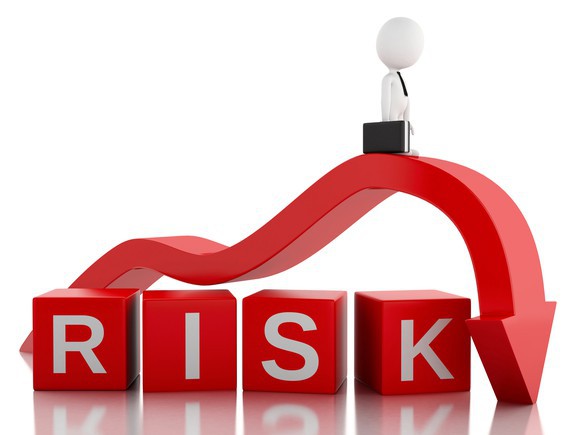Biogen (NASDAQ:BIIB), one of the world's leading biopharma companies, generates billions of dollars in sales every quarter. But I'm increasingly concerned that headwinds facing its top-selling multiple sclerosis drugs will weigh down sales growth in the future. Can Biogen overcome this risk to its revenue?
Digging into the details
The MS drug market is worth $20 billion annually, and Biogen is the Goliath in the market, with a 38% market share.

IMAGE SOURCE: GETTY IMAGES.
The company's top-selling MS drugs include the long-standing injection-drugs Avonex and Tysabri and the top-selling oral MS drug, Tecfidera.
Doctors have been switching patients to oral drugs for years, and that's caused Avonex's sales to decline. FDA approval of Plegridy, a longer-lasting formulation of Avonex, and Tecfidera's status as the most commonly used oral drug have insulated Biogen's MS market share so far, but competition is stiffening, and that's creating risk.
In the third quarter, Tecfidera's sales inched up only 3% year over year to $1.07 billion, and its growth was more than offset by declines in Avonex, Plegridy, and Tysabri. As a result, revenue in Biogen's legacy MS franchise fell 1.8% from last year to $2.24 billion in the quarter.
| Biogen's MS Sales by Drug | Q3 2017 | Q3 2016 | Change | % Change |
|---|---|---|---|---|
| Tecfidera | $1,070 | $1,034 | $36 | 3.48% |
| Avonex | $538 | $580 | ($42) | (7.24%) |
| Plegridy | $124 | $128 | ($4) | (3.13%) |
| Tysabri | $469 | $515 | ($46) | (8.93%) |
| Famprya | $24 | $21 | $3 | 14.29% |
| Zinbryta | $14 | $2 | $12 | 600.00% |
| Total legacy MS drug sales | $2,239 | $2,280 | ($41) | (1.80%) |
DATA SOURCE: BIOGEN. DOLLAR FIGURES IN MILLIONS.
What's going on?
MS market share is shifting following the launch of Ocrevus, a Roche Holdings(NASDAQOTH:RHHBY) drug used to treat both relapsing and primary progressive MS patients. Despite only winning FDA approval in March, Ocrevus third-quarter sales were $500 million.
Roche pays Biogen a 30% royalty on the drug; however, Ocrevus' royalty revenue failed to offset Avonex, Plegridy, and Tysabri sales declines last quarter. Roche paid Biogen $65 million in Ocrevus royalties in Q3, but Avonex, Plegridy, and Tysabri's Q3 sales declined $92 million from Q3, 2016. If Tecfidera's sales hadn't grown $36 million year over year, Biogen's total MS related revenue would have fallen last quarter.
Biogen's reliance on Tecfidera is concerning, because Tecfidera could face new competition next year from Celgene's (NASDAQ:CELG) ozanimod, an oral MS drug that posted arguably best-in-class safety in trials. Celgene expects to file for FDA approval of ozanimod soon, clearing the way for an FDA decision in 2018.
What could offset MS revenue risk
Biogen's spending a lot of its R&D budget on non-MS indications, including Alzheimer's disease. Their lead Alzheimer's disease drug, aducanumab, has delivered promising efficacy in early stage studies, however, the odds of success are stacked against it because, historically, 99% of Alzheimer's disease clinical drug trials fail.
Biogen's also making a push into the biosimilars market through a partnership with Samsung BioLogics. The two companies' joint venture, Samsung Bioepis, is developing copycat alternatives to some of the world's best-selling biologics, and in Q3, Biogen's biosimilar sales totaled $101 million, up 229% from Q3 2016. Samsung Bioepis recently secured an OK in the European Union for its Humira biosimilar, and a launch next year could give biosimilar sales a nice boost because Humira is the world's best-selling drug, with over $16 billion in global sales.
The company's also racking up solid sales from Spinraza, a drug that treats spinal muscular atrophy (SMA) patients. SMA is a rare disease, but premium pricing and limited treatment options translated into third-quarter sales of $271 million.
What investors need to watch
Biogen's Alzheimer's disease R&D is its biggest wild card. There's a massive need for new Alzheimer's disease treatments, and aging baby boomers mean the addressable market is growing. If aducanumab's studies succeed, then it has a very good shot at becoming a multibillion-dollar-per-year drug. However, phase 3 trials are still recruiting patients, and the estimated primary completion date for these trials isn't until 2020, according to clinicaltrials.gov, so it will be a while before we know if aducanumab works.
In the meantime, Biogen shareholders will need to keep close tabs on MS revenue trends to see if Biogen's legacy MS drugs can find their footing. If they do, then Ocrevus royalties, biosimilars, and Spinraza could offset the MS revenue risk. If they don't, then Biogen may struggle to continue delivering sales growth, especially if Celgene's ozanimod filing and approval go off without a hitch.














